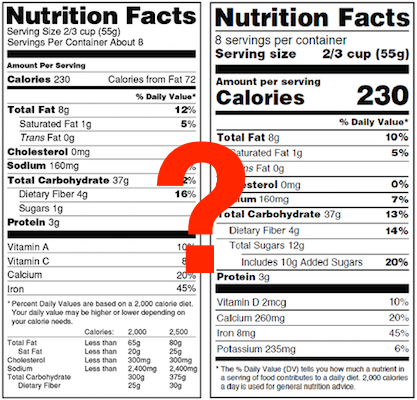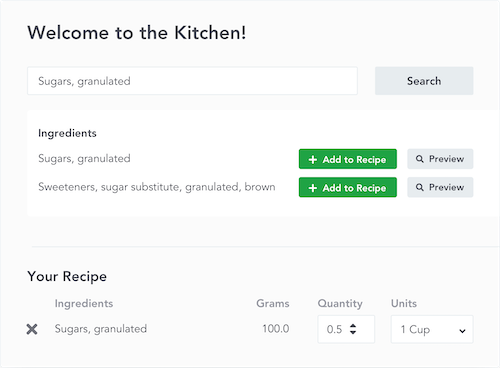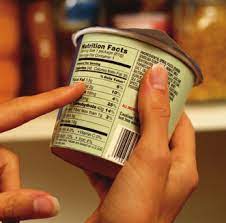Required Nutrition Labeling For Whole Foods
Getting into Whole Foods is a coup for any food company. Whether it's your local store, a whole region, or a national roll-out, Whole Foods provides great exposure and credibility for your product and lends valuable support in building your brand. The stores and the company are known for their commitment to working with and promoting local vendors, but competition for spots on the shelves is fierce.

Getting into Whole Foods is a big deal for most food startups.
Passing the Test
If you're lucky enough to be invited to pitch your product to Whole Foods, the buyers will be looking at your company with a fine-toothed comb. They'll be looking for passion, commitment, your brand, and they'll be looking at your product. They'll want to see your ingredient lists to make sure they comply with their standards, inspect your production facility, and more.
Nutrition Labels May Be Required Soon
By year's end, though, we understand that they might go one step further in their efforts to provide transparency to customers and require nutrition labels for all packaged products they carries. That requirement will apply to every supplier, even if a manufacturer is exempt from nutrition labeling under federal regulations.
In fact, it's looking as if requiring nutrition labels of all vendors might be a trend among grocery chains, particularly those that are more focused on quality and customer service.
How To Stay One Step Ahead
We've said before that there are good reasons to think about labeling before you meet the FDA thresholds requiring them. Now it looks as if there's an even bigger, practical reason on the horizon: certain retailers requiring them no matter your size.
So maximize your chances of wowing a buyer under current expectations and be ahead of the game by being prepared for any new requirements like nutrition labels Whole Foods and other markets might implement. With ReciPal it's easy and affordable to have both your nutrition information and labels ready to go for just that situation.






